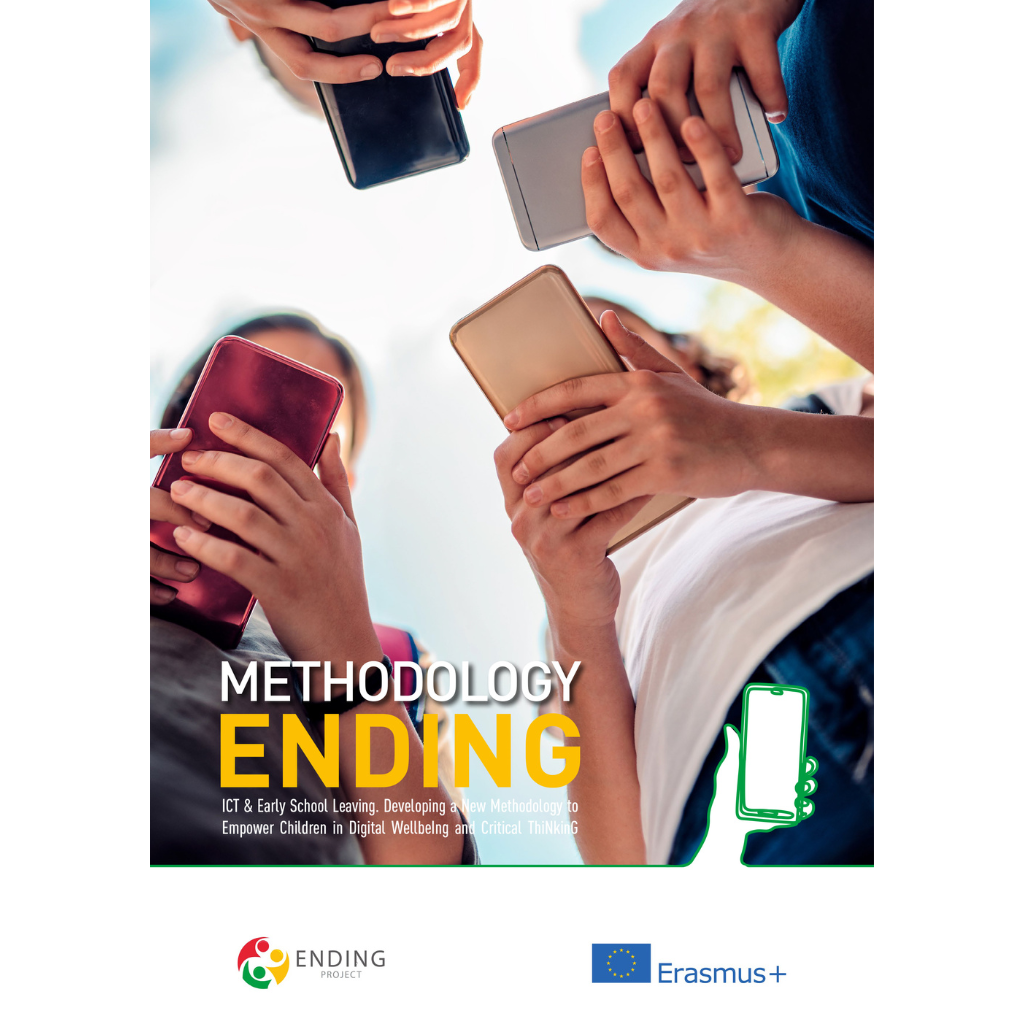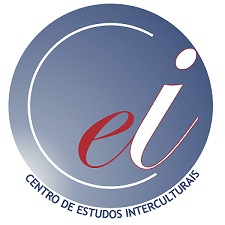
Name of the Project: ENDING – ICT & Early School Leaving. Developing a New Methodology to Empower Children in Digital WellbeIng and Critical ThiNkinG
Project Number: 2020-1-ES01-KA201-082232
Project Coordinator: Fundación Mapfre (Spain)
Type of Project: Erasmus+ KA 201 Strategic Partnerships for school education
Project Lifetime: 1st of November 2020 until 30th of April 2023
Final classification of “Excellent” (94/100) by the Spanish National Agency: relevance 19/20; quality of implementation 24/25; quality of the work team and cooperation 15/15; impact and dissemination 36/40.
Partners:
P2 – Ministerio del Interior – Policía Nacional Española (Spain)
P3 – Stiftung Digitale Chancen (Germany)
P4 – Instituto Politécnico do Porto (Portugal)
P5 – Asociación para el fomento del uso saludable de las TIC EscuelaTIC-IKTeskola Elkartea (Spain)
Member of the Safer Internet Centre’s Partner Network
Whilst the Internet offers abundant opportunities for education, networking and communication as an information superhighway, it can also manifest risks, particularly regarding vulnerable populations such as children and adolescents. These include, among others:
- Children’s exposure to disturbing or potentially harmful content on websites and online forums and blogs;
- Proliferation of child sexual abuse images and materials, and with this, increased levels of harm for the victims and increased levels of profits for criminal enterprises;
- Development of virtual networks of individuals whose principal interest lies in child sexual abuse or child trafficking and other forms of exploitation;
- Inappropriate contact with children and ‘grooming’ by unknown adults;
- Cyber bullying, by means of email, online chat services, personal web pages, text messages and other forms of electronic content;
- Children introduced to gambling via video gaming platforms.
The ENDING Project addresses early school leaving, which it is still a major concern for countries like Spain (17,9%) or Portugal (11,8%) that are far away from the 10% target set by the EU. The main objective of this project is to contribute to the decrease and prevention of early school leaving.
The general objectives of this strategic partnership are to:
- Prevent children exposure to disturbing or potentially harmful content
- Reduce ESL improving the school environment
- Design and implement a peer-to-peer methods that promote network security and digital well-being
- Develop attractive and interactive, yet simple and practical, educational contents
- Train the educational community on network security and digital well-being and encourage critical thinking
- Improve professional skills in teaching, reducing conflict in classrooms
- Promote positive interpersonal relations & cooperative learning.
The project is aimed at developing and implementing a methodology based on peer learning to prevent the abuse of ICT´s, develop of critical thinking among school-age children and help reducing early school leaving. As this is the general objective, some specific objectives are also foreseen:
- Reduce ESL improving the school environment
- Prevent children exposure to disturbing or potentially harmful content
- Design and implement a peer-to-peer methods that promote network security and digital well-being
- Develop attractive and interactive, yet simple and practical, educational content on citizenship and digital well-being
- Train the educational community on network security and digital well-being and encourage critical thinking and positive peer relationships
- Improve professional skills in teaching, reducing conflicts in school environment and early identification of situations
- Promote positive interpersonal relations, cooperative learning and peer education
- Prevent physical harm as a consequence of misuse and abuse of ICT´s.
Thus, putting forward inspiring examples carried out by the children themselves will make common values part of their everyday life and can help build more prosperous, tolerant and inclusive societies.
Therefore, the project will contain the following innovative elements:
- Role model methodology
- Participative approach focused on the online children experience
- Involve law enforcement officials, teachers, child protection officers and other professionals working with children on the empowerment of young people in the online environment
- Focused on digital well-being and critical thinking
- Empowering children and adolescents in life skills, self-protection and specific risks.
The activities of the project will be centered on three main intellectual outputs, namely:
- E-guide for educators
- E-guide for parents
- E-guide for students (Peer-to-peer methodology)
There will also be several multiplier events and training activities that are planned to widely disseminate and pilot the outputs of the project.
The abovementioned project outputs will help to achieve the following impact:
- Reduce early school leaving, especially among children and youth from disadvantaged groups or those more exposed to ICT misuse and abuse.
- “Empowered” children reporting increased capacities such as: awareness, critical thinking, cooperation.
- Improved school environment, more welcoming school with less ICT abuse and misuse.
- Teachers reporting increased knowledge in the field of responsible use of ICTs and digital wellbeing.
- Children increase knowledge on the existent threats on the Internet and their consequences.
Coordination of the project in ISCAP / Researchers involved:
Clara Sarmento (Coord.)
Isabelle Tulekian
Luciana Oliveira
Luísa Bravo Lamas
Sandra Ribeiro
Carina Cerqueira
Ana Margarida Silva
Ana Inês Pires
Resources:
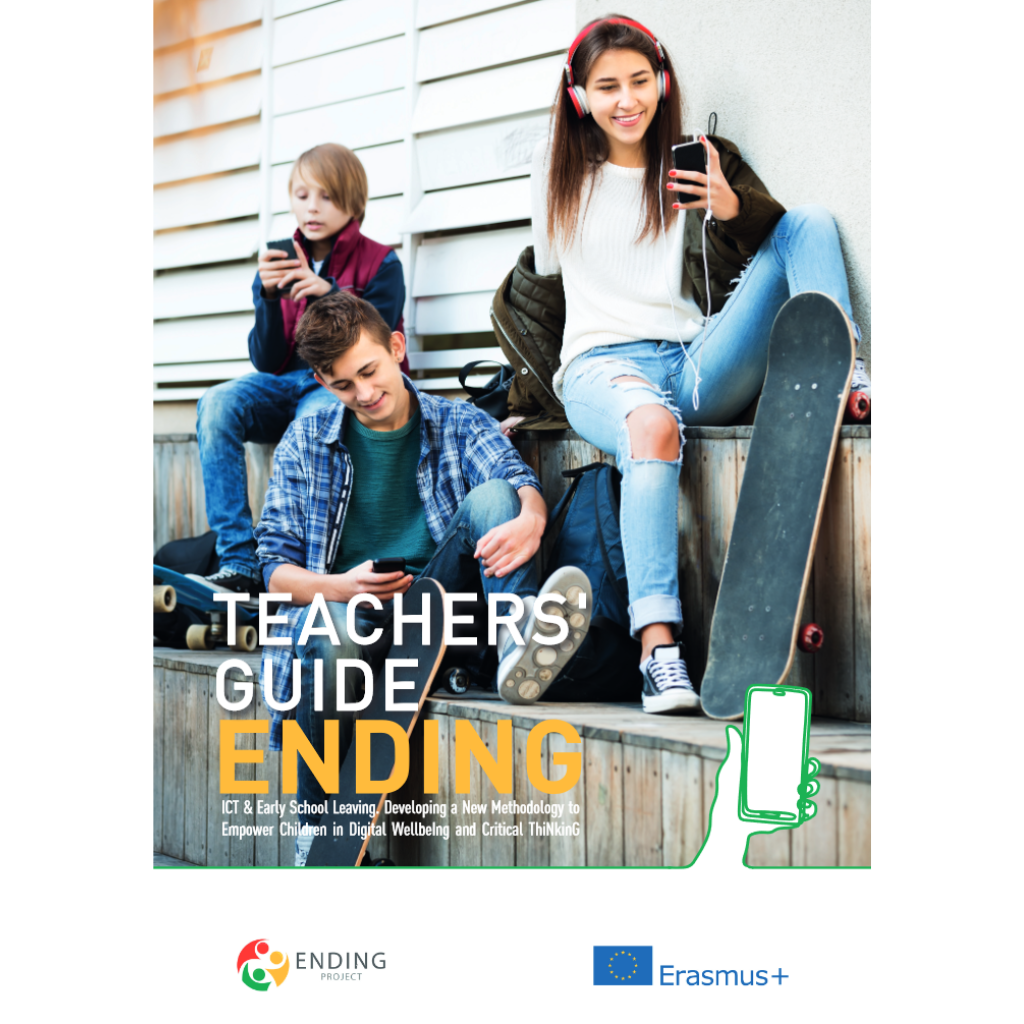
Guide for Teachers
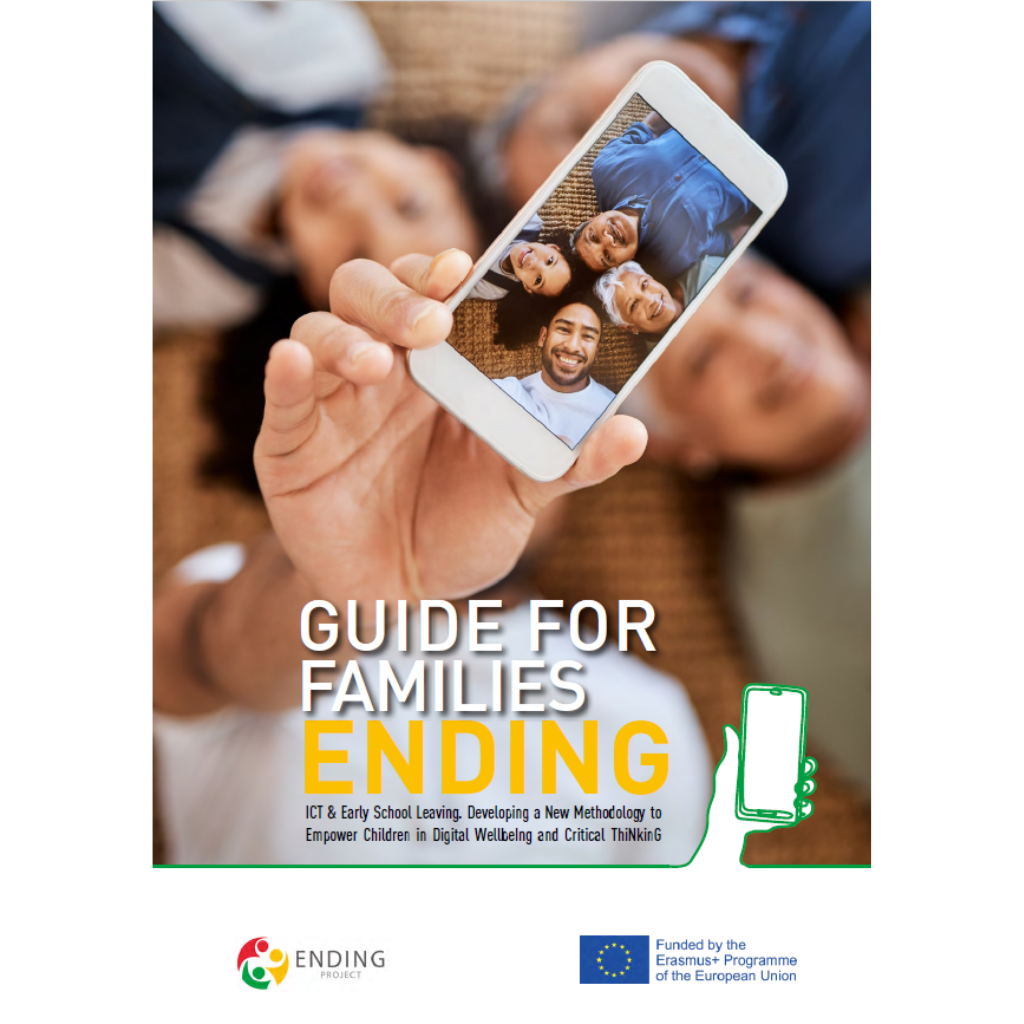
Guide for Families
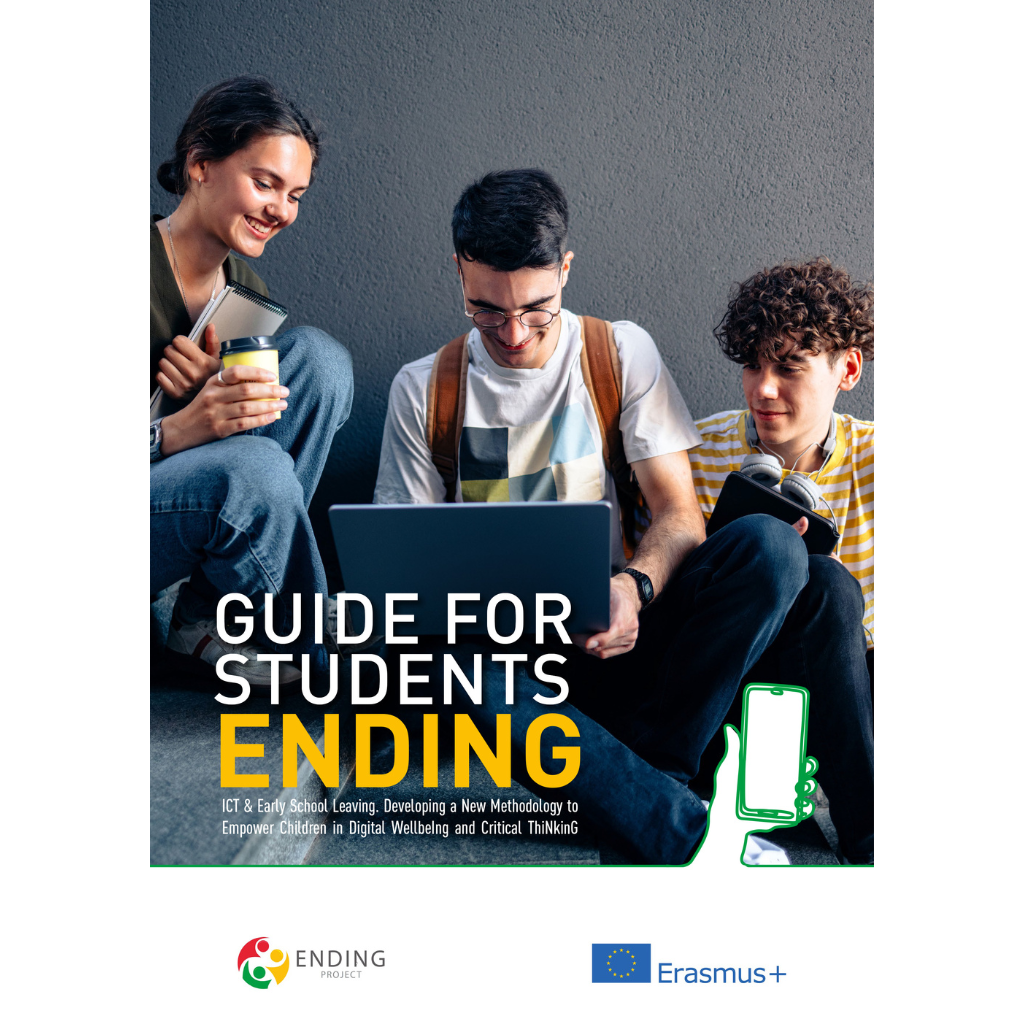
Guide for Students
